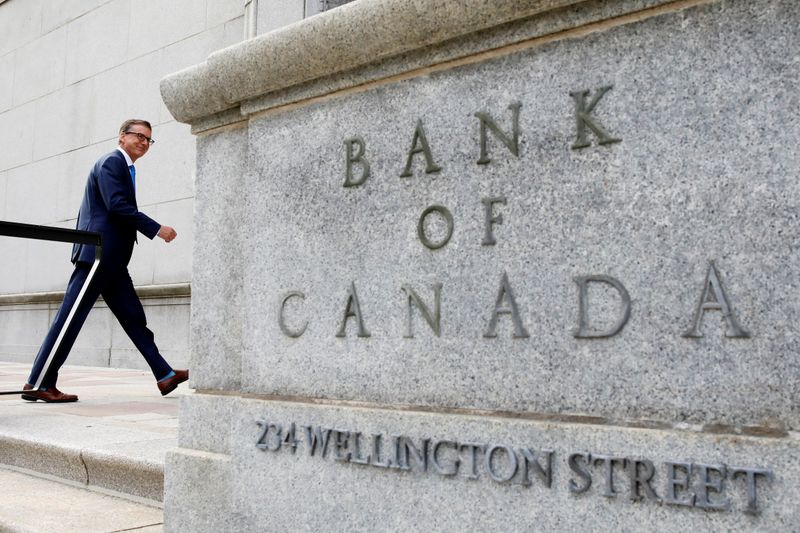By Ketki Saxena
Investing.com – This week in Canadian economics saw the release of plenty of economic releases likely to make an impact on the Bank of Canada’s monetary policy decision last week.
There was better-than-expected inflation, which cooled in September after a sharp rebound in July and August, sharply lowering bets on an interest rate hike next week. Canadian retail sales meanwhile came in worse than expected, further adding to bets that the Bank of Canada will stay on pause.
However, two economic indicators - manufacturing and wholesale sales - rose.
The Bank of Canada also released its Business Outlook and Consumer Expectation Surveys.
Here’s a recap of Canadian economics this last week:
Canada's inflation rate decelerated to 3.8% in September, down from 4% in August, coming in lower than economists were expecting. On a monthly basis, inflation declined by 0.1% Statistics Canada said the deceleration in the cost of living was "broad-based" steaming from lower prices of a range of goods and services. Core inflation came in at 3.8%, and the BoC’s preferred 3-month average core rate fell from 4.3% to 3.7%.
Canadian retail sales fell 0.1% to $66.1 billion in August, as per Statistics Canada, indicating that Canadians are continuing to cut back spending as high inflation and high interest rates impact budgets. Retail sales were down in six of nine subsectors. In volume terms, retail sales dropped 0.7% in August.
Despite plenty of signals of a cooling Canadian economy, two key indicators of the economy rose in August. As per Statistics Canada, manufacturing sales rose 0.7% to $72.4 billion, while wholesale trade sales excluding certain items increased 2.3% to $83 billion.
The Bank of Canada’s results of its Survey of Consumer Expectations for Q3 found that the rising g cost of living in Canada remains the “most pressing concern” for consumers, with inflation and high interest rates having had a negative financial impact on most households. Furthermore, many consumers believed interest rate increases were keeping inflation high, and that Canadian consumer inflation expectations are becoming increasingly entrenched.
The Bank of Canada’s Business Outlook survey meanwhile showed that inflation expectations among businesses have edged lower, but business sentiment overall remains at its lowest level in a decade, apart from a brief period during the onset of the COVID-19 pandemic. The survey also found that the impact of rising interest rates is expected to restrain businesses’ sales and investment plans. A third of businesses continue to expect a recession.
